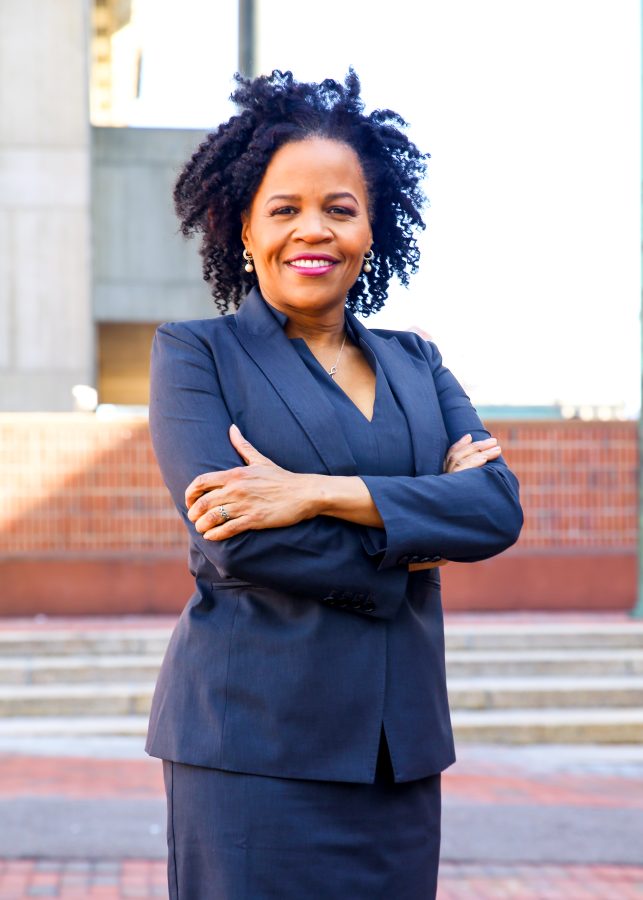During the week prior to Indigenous Peoples’ Day, acting mayor of Boston Kim Janey signed an executive order declaring that the city of Boston will observe Indigenous Peoples’ Day instead of Columbus Day.
The order went into effect this Indigenous Peoples’ Day, on Monday, Oct. 11.
“Observing Indigenous Peoples’ Day is about replacing the colonial myths passed down from generation to generation with the true history of the land upon which our nation was founded,” said Janey at City Hall following the signing of the executive order.
Members of the Massachusett tribe, the North American Indian Center of Boston and the United American Indians of New England were also involved in the signing of the executive order.
“As someone who was born in Boston but never felt that Indigenous people were welcomed by the city government, I am very happy about Mayor Janey’s actions today,” said Kimimilasha James, an Aquinnah Wampanoag youth leader affiliated with the United American Indians of New England.
“For far too long, the indigenous history of this place has been obscured, and frequently erased, by the histories, myths, and priorities of the dominant culture,” said Elizabeth Solomon, a member of the Massachusett tribe in a statement. “We are happy to see the City of Boston take the important step of recognizing and celebrating Indigenous peoples in Boston, the Americas, and around the world.”
“As a First Nation Migmaw mother, I am pleased that the city of Boston is honoring Indigenous Peoples’ Day,” said Gloria Colon, Outreach Coordinator for the North American Indian Center of Boston. “Growing up in Dorchester, I experienced racism [and] I was targeted just for being Indigenous. While our city still has work to do to make all people safe, it is important that Indigenous children are appreciated and included.”
The celebration highlights the Massachusett, Wampanoag, and Nipmuc tribes of Massachusetts and New England.
Prior to European colonization, the Massachusett tribe lived where Boston currently stands. The Nipmuc tribe lived in central Massachusetts—more specifically in southern Worcester county—and also in parts of Rhode Island and Connecticut. The Wampanoag tribe lived in Rhode Island and the edge of the Massachusetts Bay region.
The executive order drew criticism from some, most notably, Boston City Councilor Lydia Edwards, who represents the North End.
“I was elected to represent the largest Italian American community in the city,” wrote Edwards on her Facebook page. “Today’s unilateral action by the acting mayor was a surprise to me and I don’t believe it encourages the honest, transparent, healing conversation we need.”
The following day, Edwards apologized for her comments, and stated that she is in support of Indigenous Peoples’ Day, but not of the way in which the decision to replace Columbus Day was made.
Many Italian-Americans who live in Boston were also outspoken in their concerns regarding the shift.
Janey states that she consulted with Italian community members before making this decision, however, Brian Patacchiola, a board member of the Italian-American Alliance contests this.
Patacchiola said that Janey did not reach out to the Alliance, or “the other major Italian-American groups.”
Additionally, a woman in the crowd at the executive order signing ceremony disrupted the ceremony by yelling that the decision excluded Italian-Americans.
“Italian-Americans have a rich history in the city of Boston and certainly in our nation,” responded Janey to the disruption. “We should celebrate all cultures, and I want to remind everyone here: Justice is not a zero-sum game. We can lift up the experiences of Indigenous peoples, and we can also respect Italian-Americans.”
Other Italian-Americans in Boston reacted differently.
“Any association with Christopher Columbus diminishes our culture and does not honor the struggles and contributions of our ancestors or the long tradition of human rights activism in the Italian-American community,” said Heather Leavell, co-founder of the Italian-Americans for Indigenous Peoples’ Day.
Janey’s office has stated that a series of proposals have been made in order to take actions to protect Indigenous people in Boston.
“Signing an executive order is easy,” said Janey. “What is incumbent upon all of us is that we take the steps necessary to understand our complicated history to make sure that we’re lifting up those who for too long have been marginalized, and that we do create space for all of us to enjoy the city of Boston.”

